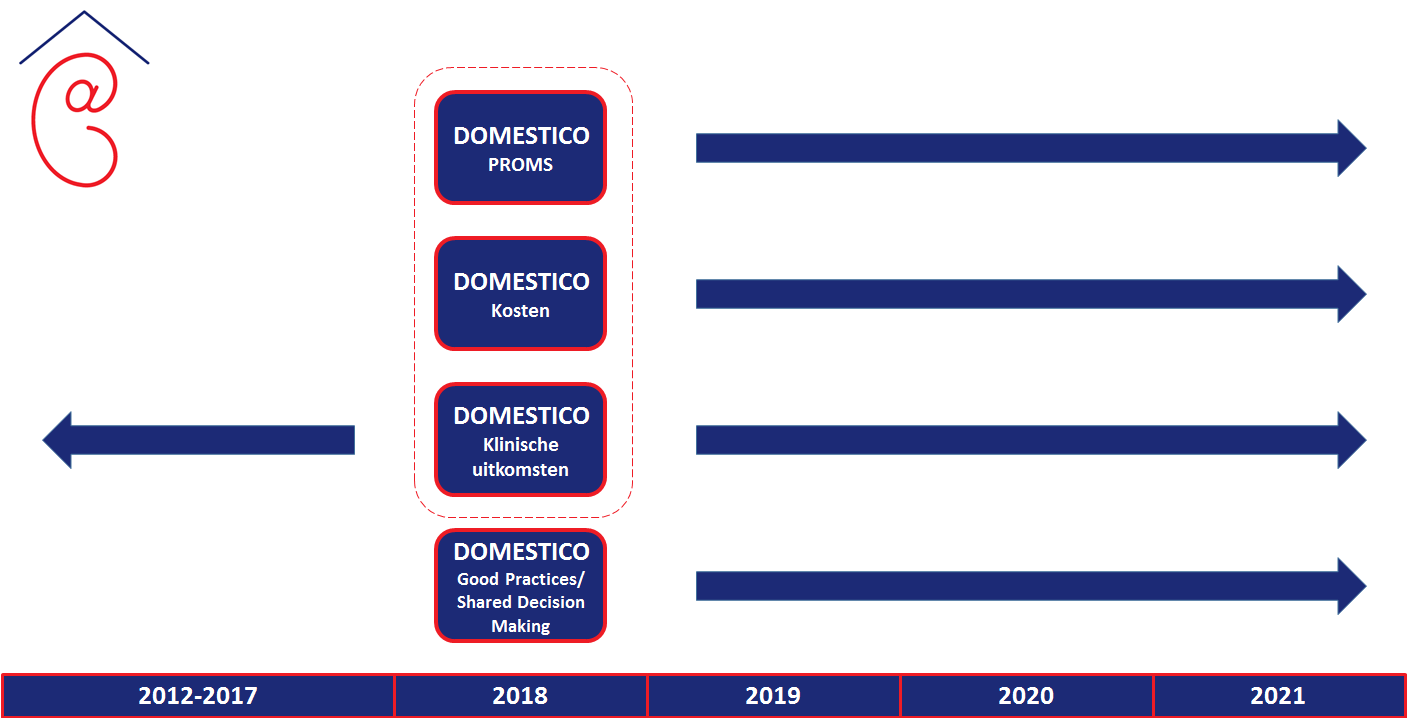DOMESTICO – prospective
DOMESTICO – prospective has started on December 1th, 2017. This project focuses on:
- Determining the effects of home dialysis on quality of life compared to in-center hemodialysis, measured by patient reported outcome measures (PROMs);
- Performing a cost-effectiveness analysis of the various forms of home dialysis compared to in-center hemodialysis, which should contribute to higher value-based health care (i.e. maximum value of patient care at the best costs);
- Determining the clinical outcomes of home dialysis, in particular technique failure and hospitalization, compared to in-center hemodialysis, and identifying modifiable factors.
The following hypothesis has been formulated: “Home dialysis leads to a better quality of life, similar clinical outcomes and lower costs in comparison to in-center hemodialysis”.
We have received ZonMw (the Netherlands Organisation for Health Research and Development) funds for this project and also funds from Fresenius, Baxter and Dirinco.
DOMESTICO – retrospective
With funds from the Dutch Kidney Foundation, a cohort of 1200 patients, who started with home or night dialysis (peritoneal dialysis, home hemodialysis, nocturnal hemodialysis) between 1-1-2012 and 1-1-2017, will be analysed to find reasons for technique failure and modifiable factors that can be addressed to prevent early and late technique failure.
In addition, clinical outcomes (including hospitalization, blood pressure and metabolic regulation, mortality) of these patients will be compared with 600 patients who started in-center hemodialysis during the same period.
Good Practices and Shared Decision Making
This DOMESTICO project, which was carried out from January 2018 to May 2019, focused on improving the education process regarding renal replacement therapies by applying Good Practices and Shared Decision Making.
The questions which were addressed in this project were:
- How is the education process regarding renal replacement therapies (with a focus on dialysis) now and to what extent is Shared Decision Making applied (current use of the four-step model; current use of decision aids, i.e. information website ‘Nierwijzer’, option grids, 3 good questions)? How is the experience with this, what is the degree of practice variation and what Good Practice examples exist?
- The development and implementation of a “Pathway for the education process aimed at Shared Decision Making”, in which the four-step model, the ‘Nierwijzer’, option grids, 3 good questions and other Good Practices are incorporated.
- How is the education process at the end of the study and to what extent is Shared Decision Making incorporated? How has the Shared Decision Making changed for the patients (is there a higher percentage of patients who feel they have made a choice together with their nephrologist?) Has the practice variation with regard to providing education on renal replacement therapies been reduced?
This project has been carried out in 12 Dutch hospitals and the following products have been developed:
- A workshop ‘Shared Decision Making: from education to dialogue’. This workshop has been developed in collaboration with the Dutch Kidney Patients Association (NVN). In the workshop, we explain what Shared Decision Making entails, what current guidelines describe and what it means for health care professionals. Subsequently, the decision aids are presented and practical tips are given about the implementation and use of these aids. This 2-hour workshop can be booked through the NVN; nvn.nl
- A pathway for the education process aimed at Shared Decision Making.
- Several protocols with Good Practices regarding the education process and renal replacement therapies, e.g. group education or a home visit.
The developed pathway and Good Practices will be published on our website soon. In addition, we aim to publish the further results of this project in 2020.
This project was funded by Stichting Kwaliteitsgelden Medisch Specialisten (SKMS) and health insurers CZ, Menzis and Stichting Achmea Gezondheidzorg.
Informal caregiver project
The informal caregiver project is an extension of the DOMESTICO project.
The aim of this project is to study the effect of starting (home) dialysis on informal caregivers of dialysis patients (participating in DOMESTICO). This project studies both positive and negative experiences, in particular whether differences exist between informal caregivers of home dialysis patients and in-centre dialysis patients. Participating informal caregivers fill out a series of questionnaires at three points, which measure positive and negative experiences and assess their HRQoL. With this information, informal caregivers can be better supported.
For this project, we recieved a grant from the Dutch Kidney Foundation.
The image below gives an overview of the entire DOMESTICO project.

Nefrovisie has created the database for DOMESTICO – prospective / retrospective and will take care of maintenance during the course of the study and in the future.
